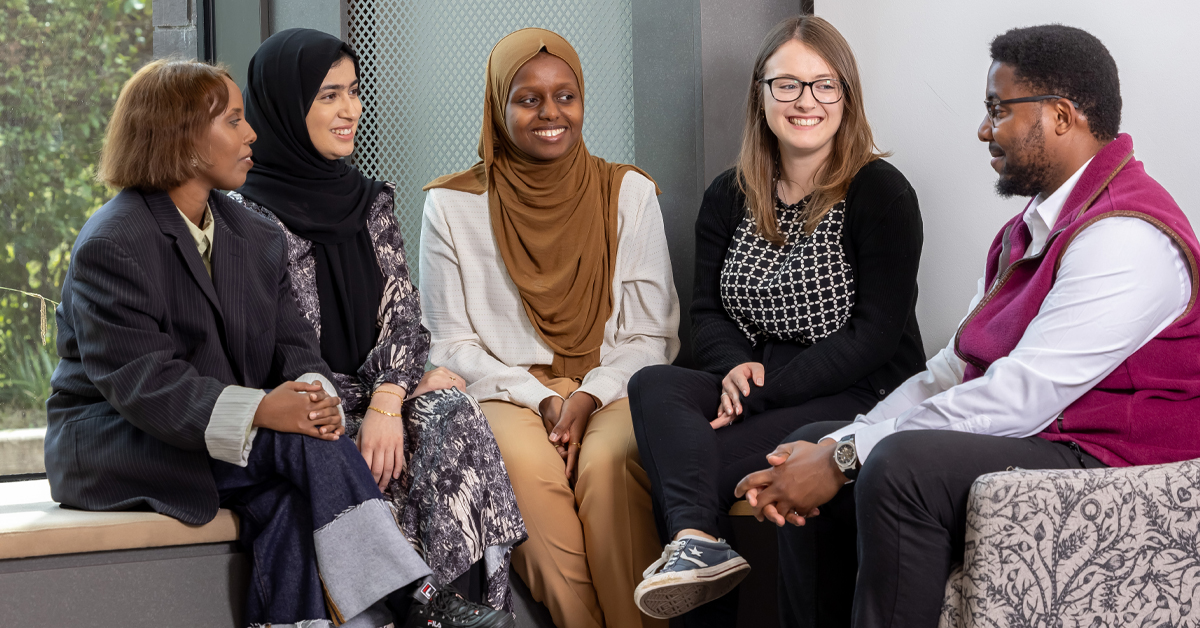The NGDP aims to provide a diverse pipeline of talented future leaders for local government. We are committed to continuous improvement with respect to equality, diversity and inclusion.
Councils are looking to recruit graduates who are representative of their communities, coming from a range of backgrounds and life experiences. We believe that the best possible services are delivered by a workforce who can truly connect to a place and its people, which means that everyone is needed, and everyone is welcome.
Equality, diversity and inclusion is one of the biggest priorities for the NGDP. In 2019 we commissioned an independent Equality and Diversity review. We have taken action on the recommendations made in this report which has resulted in positive outcomes for the programme, and we are committed to continuously reviewing and improving our processes.
Our assessment process is designed to be accessible and inclusive and is constantly reviewed to ensure this is the case. You can find more information about accessibility and adjustments to the assessment process on our accessibility page.
We have several diversity and inclusion networks on the programme, take a look at out NGDP networks page for more information.
Equality, diversity and inclusion in the NGDP application
We believe all NGDP candidates should have a fair and equal opportunity to succeed throughout the recruitment process, and we want to give all candidates the best chance to showcase their abilities.
Below are some of the ways in which we create a level playing field for candidates.
- We prioritise working with universities who rank highly for student diversity social mobility, running bespoke skills sessions which help demystify the application process and to challenge misperceptions about local government.
- We work directly with student groups and Widening Participation departments at universities.
- We send our own graduate trainees to promote the programme at university events, who can speak to students about their own experience of the application process and their time on the NGDP.
- Our Situational Judgement Test has been tested with a diverse group of people currently on the programme to understand and mitigate against any adverse impact.
- The NGDP application process is completely anonymous until stage 3 – the assessment centre.
- Although candidates undertake a video interview in stage 2, only the audio files are marked in order to prevent bias wherever possible.
- We offer coaching to candidates throughout the application process. In previous years, this has been done by the NGDP BAME Network, as well as an external organisation commissioned to provide expert coaching. This coaching offer is particularly aimed at those from underrepresented backgrounds.
Our assessment process is designed to be accessible and inclusive and is constantly reviewed to ensure this is the case. You can find more information about accessibility and adjustments to the assessment process on our accessibility page.
Care leavers
We encourage applications from care leavers and have several support options available throughout the application process. The support available includes:
- guaranteed coaching for any care leavers
- webinars and skills sessions.
Data collection and monitoring
We collect data on our candidates’ protected characteristics during the recruitment process and monitor impact at every stage. This data is always anonymised and is used to create an overall picture of candidates progressing through our recruitment stages, and once we have recruited a final cohort. This data is also used as a comparison with previous recruitment cycles, so we can continuously monitor the make-up of each Cohort, as well as monitoring areas of improvement for future. We present this data to the participating councils on the programme, as well as the NGDP Networks.
Support on the NGDP
Once you’re on the scheme, you get so much support from the NGDP team, the other graduates at the council and the rest of the graduates across the country which is an invaluable network to have.” Aimee, based in London
We aim to be as inclusive as possible on the NGDP, encouraging our trainees to use pronouns at NGDP events, as well as taking on board feedback to ensure our learning and development sessions are accessible to all trainees on the programme.
Read the experiences of our graduate trainees on our NGDP experiences page.
Welfare and wellbeing has never been more important, especially with many graduates working flexibly from home. Local government is known for its opportunities for flexible working, even before the pandemic. Some local authorities also offer cycle to work schemes, season ticket loans and other employee benefits. Staff networks also exist in many local authorities, giving employees the chance to network with a range of colleagues in their organisation.

